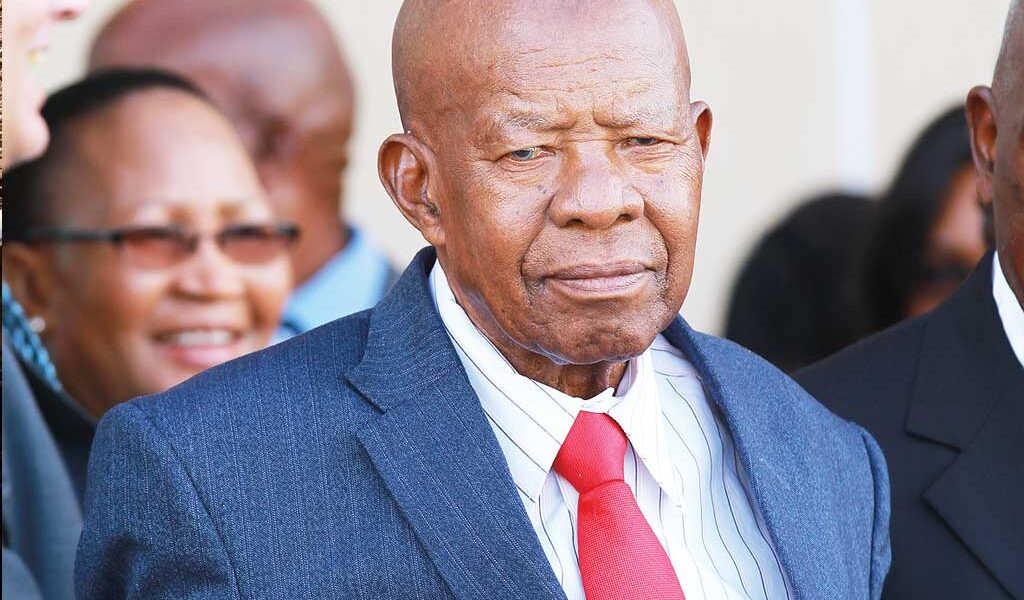Richard Moleofe
The country is doing everything to achieve good results in the upcoming jubilee celebrations. The most important aspect of these celebrations is the level of peace and tranquillity that the people here have been enjoying. Botswana has enjoyed five decades of uninterrupted peace.
This peace has allowed the country to develop from what was one of the poorest in the world to what has now become a middle income country. Mining is largely responsible for turning the fortunes of our country. We would still be miles behind in development if we had not been blessed with so much mineral wealth beneath us.
I am tempted to say that former president Masire single handedly transformed the country from the unknown backwater to one that has found itself a firm place on the world stage. Masire’s influence in the country’s development is so significant and he has literally left his fingerprints everywhere. Having been the vice president and president of the country for thirty-one years, he is the man to receive either the credit or damning on the direction the country has taken. Everything revolves around this man so much that even the choice of our current president rested squarely on his shoulders.
Before his departure, Masire hurriedly arranged two things for this country. First it was the creation of Botswana National Productivity Centre, an idea borrowed from Singapore. The idea of boosting our productivity levels was a good one even though the speed at which it was introduced at was quite dizzying. Very few have now heard of BNPC in the last one year. This is so because it is fast losing its place in our society.
Truth be told, our society’s work ethic still needs to be recharged but this could be something relegated to an organization such as the Institute of Development Management (IDM). In one way or the other, the advent of BNPC has slowed down the good work that IDM had been doing.
Masire also hastily put in place our national vision, a collection of good ideas that were meant to be fulfilled in the year 2016. To this end, the nation has failed on achieving its intended goodies in the vision. We are worse off than in 1996 when we celebrated thirty years of independence. Masire’s intensions were good and the implementation of the two mega projects were completely wrong and this is why we have not achieved any good results.
In the process we have neglected mining. An industry that has made this country what it is today. This past week’s newspapers are full of negative stories on the industry. We are literally being warned to brace ourselves for the worst in our year of jubilee.
According to Jewish tradition, the year of jubilee is a year of good news. From the records of the Bible, this was a year when slaves are freed and debts forgiven. In our case the debt part would be ideal for those owing the National Development Bank. Land that was bought gets returned to their original owners in such a year.
Natural calamities have not given us any respite in our year of jubilee. This has been a tough year for both man and animals. There is little that government can do to fully mitigate the effects of such natural phenomena. But the drought has also been compounded by issues of lack of proper planning on the part of government.
There will be very little that the miners in Selebi Phikwe can do to celebrate our year of jubilee in real jubilation mode because they will soon be laid off unless a miracle happens. The industry is facing equal challenges the world over. The mining industry like that of oil is all connected. We cannot be immune from the world’s calamities.
Through proper planning, the effects of the slowdown in the mining industry can be minimized. Government has been pumping so much money into Selebi Phikwe as a town and BCL as a mine. SPEDU is a deliberate plan to prevent the place from becoming a ghost town once the mine is gone.
While government has done its part on one hand, they have allowed the mining parastatal too much leverage without close monitoring. It is surprising in the first place why the board of BCL allowed its management to purchase a private jet. This is something that even Debswana does not have in its inventory. The latter has always maintained turbo propelled aircraft and it serves their needs well.
It is with great sadness that the disposal of this private jet will be accompanied by the laying off of innocent workers. For the estimated 2 000 workers facing doom, this is the end of the road to independence and jubilee celebrations.

